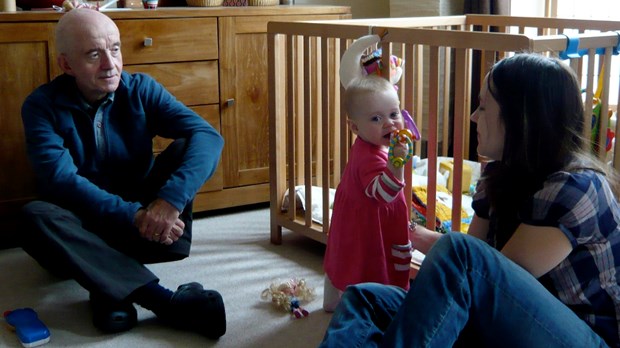I had another one of those “only in a small church” moments last Sunday.
The positive kind.
As I was shaking hands at the door after the service, I chatted with a man who’s been attending for a few weeks. He told me he was thinking about making us his permanent church home, but he had a few questions he needed to ask first.
He didn’t have his calendar ready, so I asked him to email me to set up an appointment.
“Who should I email?” he asked.
“Me,” I said. “My email address is on the back of the bulletin.”
“When I set up the appointment, who will it be with?” he asked.
“Me,” I answered.
He paused for a moment. “You mean, just you and me? I’ll get to sit down and talk with you directly? It won’t be in a room with a bunch of other people? Or with one of your staff members?”
“No, just me. I hope that’s not a disappointment,” I joked.
“Wow,” he responded. “I’ve only attended big churches before this one. Whenever I had a question, they put me in a class or a small group. I’ve never been able to meet one-on-one with a pastor. This is just what I need!”
He walked away with a big smile on his face. So did I.
The Small Church Advantage
This isn’t an anti big church article. We don’t do that here. It’s a pro small church article.
When someone goes to a megachurch, there’s no way the pastor can answer the average request for a face-to-face meeting. So they hire staff and set up systems to meet those needs in other ways. That’s a fine alternative for a lot of churchgoers and their spiritual growth.
But it doesn’t work for everyone. It hasn’t worked for the guy I talked to on Sunday.
Some people need access to their pastor. It helps them grow. It lets them ask the tough questions. It allows them to open up on a more personal level.
Often, these meetings are a follow-up from the Sunday sermon, so it matters that it happens with the person who actually delivered the sermon that challenged, inspired or comforted them.
I don’t know where the conversation(s) with this man will go. I don’t even know if he’s ever made a full commitment to Christ. But I will know all of that soon. If my meeting with him is anything like previous meetings with others, he’s likely to open up to me about his faith, his fears, his doubts, his sins and his hopes.
He’ll experience opportunities for spiritual growth by meeting with his pastor that could never have happened for him in a classroom or small group.
Yes Pastor, You Matter
If you’re a small church pastor who’s struggling with the fact that you don’t have the small groups or classes you’ve been told you should have, I understand your frustration. Our church has had more failures than successes in launching small groups.
But then I have an encounter like I had on Sunday, and I’m reminded of what my church has, not what we don’t have.
Besides, your church may not need a small group ministry. I know that goes against every church growth principle you’ve ever heard, but in some cases it’s true. If you want get some idea of how to determine this for your church, check out my post, 4 Signs Your Church May Not Need Small Groups.
Let’s not forget that the disadvantages of a small church are regularly outweighed by the privilege we have of discipling people on a more personal level.
You’re their pastor. That matters. Let’s make it count.
Copyright © 2017 by the author or Christianity Today.
Click here to read our guidelines concerning reprint permissions.
Pivot is a part of CT's
Blog Forum. Support the work of CT.
Subscribe and get one year free.
The views of the blogger do not necessarily reflect those of Christianity Today.
Join in the conversation about this post on Facebook.
- A Discipleship Strategy Small Churches Can Actually Follow, with Darrell Stetler (Ep 38)Darrell and Karl talk about the importance of discipleship in the life of the church – and as a central role in our calling as pastors.
- Why Proximity and Longevity Matter in Pastoral Ministry, with Alan Briggs (Ep 36)Karl interviews Alan Briggs, a pastor, the author of Staying is the New Going, the host of the Right Side Up Leadership podcast and StayForth.com.
- Seculosity: Ministry In The Era Of Secular Religion, with David Zahl (Ep 37)Karl Vaters interviews David Zahl, author of Seculosity: How Career, Parenting, Technology, Food, Politics, and Romance Became Our New Religion and What to Do about It.
- Should You Start a Podcast? And Positive Ministry Trends, with Aron Utecht (Ep 35)Karl Vaters interviews Aron Utecht, a pastor and the host of the Good Ideas for Churches podcast
















